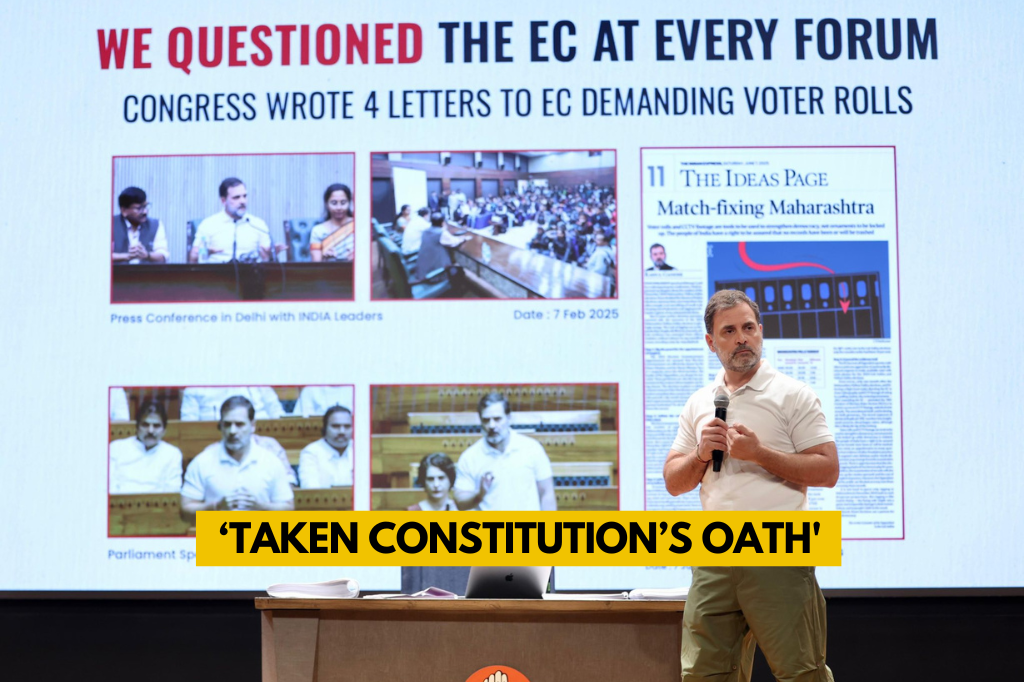Congress leader Rahul Gandhi has intensified his attack on the Election Commission (ECI), refusing to sign an affidavit backing his allegations of large-scale “vote theft” and instead demanding the release of complete electronic voter lists along with corresponding video footage.
Addressing a rally in Bengaluru, Gandhi said, “The EC says I must take an oath. But I’ve already taken an oath on the Constitution in Parliament. Today, when the people of the country are asking questions about our data, the Election Commission has shut down its website. The ECI knows that if the public starts questioning them, their entire structure will collapse.”
Gandhi alleged that if the ECI provided the Congress with electronic data from past elections, it could “prove, loud and clear, that Narendra Modi became Prime Minister by stealing votes.” He claimed several state EC websites were shut down after Congress exposed irregularities and reiterated his demand for 10 years of voter data nationwide, warning that failure to provide it would be taken as confirmation of electoral malpractice.
Explaining how the party uncovered the alleged fraud, Gandhi said that when the ECI “did not help,” the Congress began its own investigation in the Mahadevapura Assembly segment of Bengaluru Central Lok Sabha constituency. “There are 6.5 lakh votes in Mahadevapura, and out of them, 1,00,250 votes were stolen. That means the BJP stole one out of every six votes,” he claimed, adding the evidence was presented in a press conference.
The ECI, citing communications from Chief Electoral Officers in several states, has asked Gandhi to submit specific details of disputed voters under Rule 20(3)(b) of the Registration of Electors Rules, 1960, to enable a formal probe. Gandhi accused the poll body of protecting the BJP and “destroying evidence” by not preserving digital records for longer periods.
Congress president Mallikarjun Kharge backed the remarks, accusing the EC of deflecting rather than addressing opposition concerns and calling for full transparency in the electoral process.







